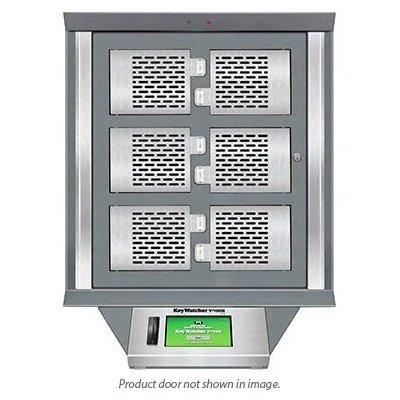 |
| The SharpEye™ sensor operates in X-band frequency and is contained in the upmast antenna turning unit |
Kelvin Hughes (www.kelvinhughes.com), a global supplier of navigation and surveillance systems, can announce the success of its solid-state SharpEye™ radar at a Navy Expeditionary Combat Command (NECC) demonstration in Virginia, USA.
The U.S. Department of Defense’s Stiletto Maritime Demonstration Program's Capability Demonstrations allow participating industry an opportunity to receive immediate feedback on systems as end-users observed the new technologies in a realistic military maritime environment.
Kelvin Hughes’ core radar sensor technology was chosen for the demonstration on-board the US Navy Technology Demonstrator Stiletto during Capability Demonstration 1, giving NECC sailors a realistic military maritime context for its application in littoral warfare.
The SharpEye™ sensor operates in X-band frequency and is contained in the upmast antenna turning unit. This saves space and improves signal performance by reducing the length of wave guide that is typically required.
Other benefits that led to the Stiletto Maritime Demonstration program selection of SharpEye™ for this demonstration, include enhanced detection of small targets in heavy rain and high sea states due to the patented pulse sequence and Doppler processing.
Adrian Pilbeam, Vice President of Kelvin Hughes LLC said, “The SharpEye™ radars provide the operator with the best situational awareness picture of any current surface search or navigation radar. Apart from the obvious maritime security applications, this performance benefit is also being used in many other areas for detection of small targets such as VTS and coastal surveillance applications, land surveillance and infrastructure security.”
Kelvin Hughes also supplied Naval MantaDigital™ radar display software for integration with SharpEye™ radar. This advanced tracker system enables continuous detection and target tracking for situational awareness, while operating at high speed and with very fast seaborne targets such as the jet skis that were used for testing.
The user-friendly interface provides chart overlays, high fidelity-detection and high resolution through SharpEye. This gave operators a quality picture of situational awareness even while operating at high speed.
The Capability Demonstration testing gave Kelvin Hughes valuable immediate feedback from experienced operators, which can be used to develop technologies even further for future naval use.

















